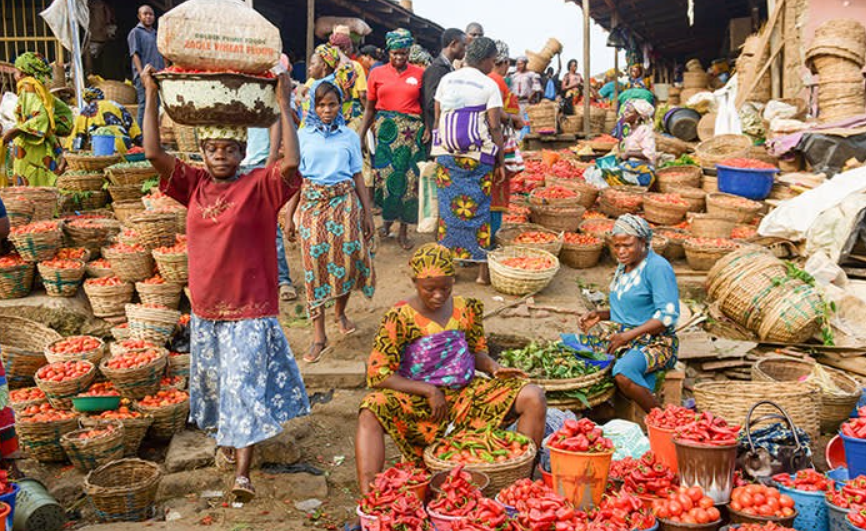President Bola Tinubu has said that the high price of food items in the country can be attributed to the loss of 60% to 70% of the food produced due to external damages such as bad roads, banditry, and terrorism.
This was contained in a statement by the president’s spokesperson, Ajuri Ngelale, on Tuesday, conveying the president’s message during his meeting with the delegation of the National Assembly in Lagos.
According to Tinubu, without good roads to transport food to the population, even if farmers grow it, losing 60 to 70% to external damages means Nigerians will have to pay more.
The president also stated that the government must eliminate banditry and terrorism to allow farmers to return and cultivate their farmlands.
“Yes, there is poverty; there is suffering in the land. We are not the only people facing such, but we must face our challenges.
“We must find a way to eliminate banditry and terrorism so that farmers can bring out food from the farmland. If you do not have good roads to bring the food to the population, even if you grow the food and you are losing 60-70% to damages, you will pay the price,” President Tinubu said.
Nigeria needs to stop all economic sabotage
In addition, the president said the citizens of the country need to eliminate all economic sabotage and change their mindset to foster growth and development.
Tinubu said the vandalism of rail tracks and electric cables among other things sabotage the economy and stifle growth.
He also explained that Nigerians have to change their mindset and value system to eliminate smuggling and all other vices that adversely affect the economy.
“The need (for some citizens) to change the rent-seeking mindset and become more productive to the economy is a challenge. The need to stop smuggling and all economic sabotage.
“Why should we have people removing rail tracks and all that, stealing electric cables, and sabotaging the economy? We must embrace the campaign to change our value system. We must tell our people that the challenge we face is for all of us to change our mindset about our country,” President Tinubu said.
What you should know
- Nigeria is currently experiencing severe economic difficulties, with inflation exceeding 30%, marking the most significant challenge in over three decades.
- According to the National Bureau of Statistics (NBS), Nigeria’s inflation rate rose to 33.95% in May 2024, up from 33.69% in April 2024.
- This 0.26-percentage point increase reflects a steady climb in the cost of living, with year-on-year inflation rates surging by 11.54 percentage points from 22.41% in May 2023.
- Furthermore, Nigeria’s food inflation rate hit 40.66% year-on-year, a substantial rise from the 24.82% recorded in May 2023.
- This dramatic increase in food prices is attributed to various factors, including insecurity, insufficient funding for farmers, and high import duties on food items.
